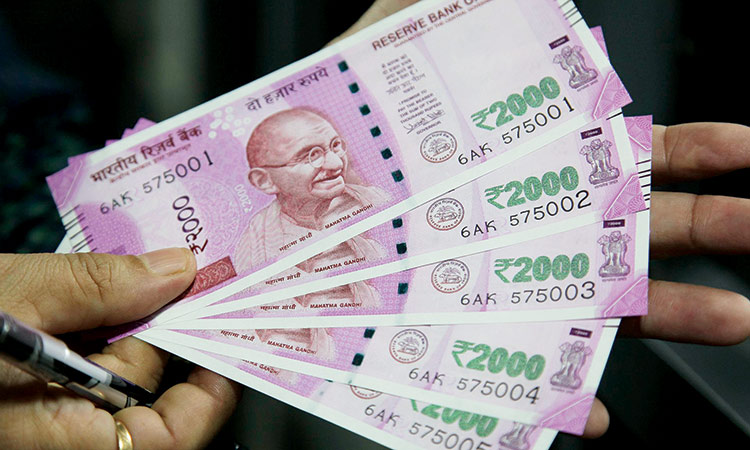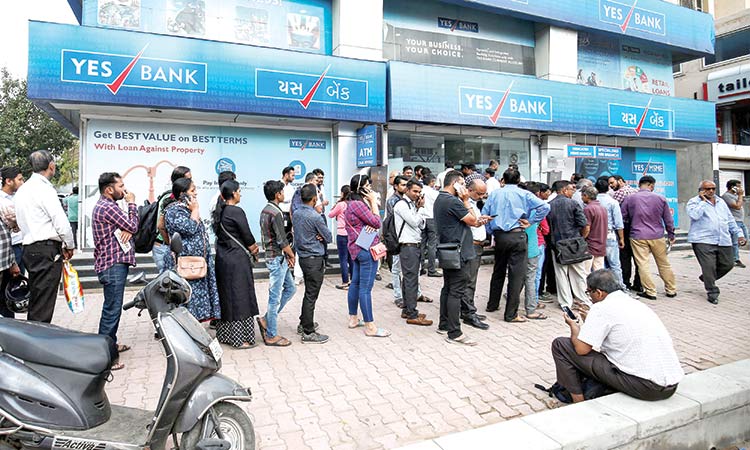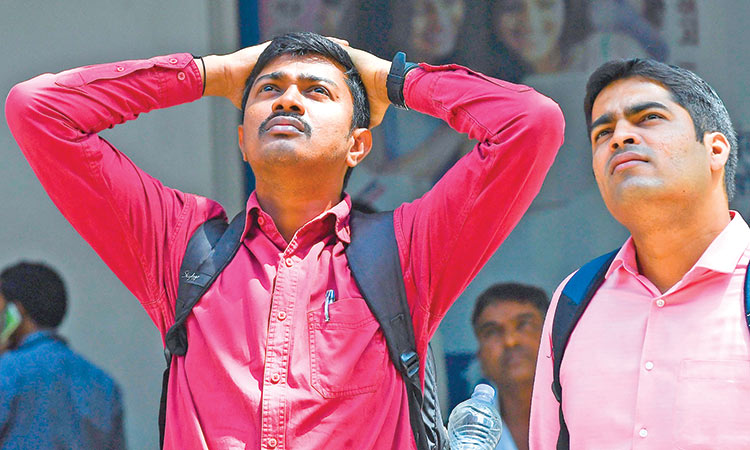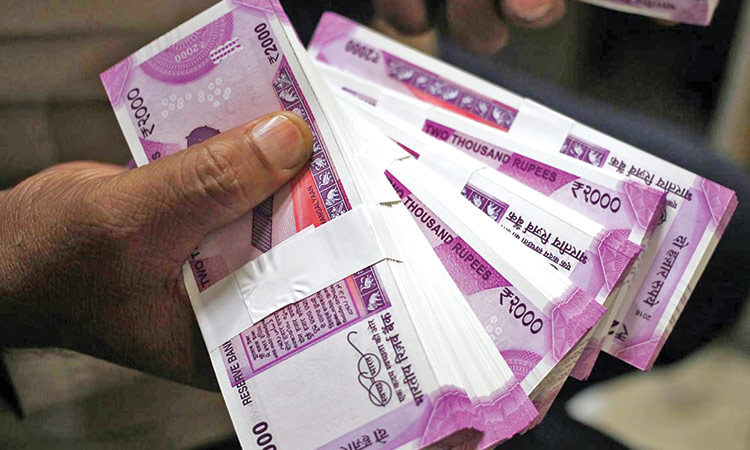Indian rupee hits record low, slips below 75-mark against US dollar

On dirham basis, Indian rupee is now at Rs20.45 and looks like going down further.
Sustained outflows by foreign institutional investors (FIIs) further weighed on market sentiment. FIIs have offloaded more than Rs70,000 crore from the domestic capital market in March so far.
The domestic unit depreciated nearly 80 paise to record low of 75.02 per dollar against the previous.
The domestic unit depreciated nearly 80 paise to record low of 75.02 per dollar against the previous close of 74.23.
Coronavirus cases in India have crossed 165 as of March 19, according to the Health Ministry. Benchmark equity index BSE Sensex cracked over 2,000 points in the morning trade as global gloom over the Covid-19 pandemic continued to hammer equities.
On dirham basis, it is now at Rs20.45 and looks like going down further
According to sources at local currency houses, most of the remittances to India from the UAE this month had already taken place in the first seven to 10 days, when the dirham was at around 20.22 levels.
“I don’t think too many resident Indians were holding back for the rupee to decline further, at least the salaried ones,” said a currency house official.
Around 12.45 pm, it was trading at Rs 75.14, or 1.24 per cent weaker than its previous close.
The recent depreciation in the Indian currency has been on the back of persistent pressure of coronavirus fears on global markets along with a free fall in oil prices. The dollar also strengthened against other Asian currencies.
Stock markets also plunged on Thursday as Sensex fell below the 27,000-mark and Nifty50 breached the 8,000 mark for the first time in over three years during the initial trade.
In a bid to increase liquidity and enhance confidence in the market amid the coronavirus crisis, the Reserve Bank of India (RBI) on Wednesday announced it would purchase government securities worth Rs10,000 crore through open market operations.
Brent crude futures, the global oil benchmark, rose 1.73 per cent to $25.31 per barrel. The dollar index, which gauges the greenback’s strength against a basket of six currencies, was up 0.22 per cent at 101.37. The 10-year government bond yield was at 6.37 per cent in morning trade.
The stocks markets opened in the red on Thursday, with a massive nearly 7 per cent fall in the key indices. The sell-off continued in the Indian markets, in line with the Asian indices amid the continuous fears of the coronavirus pandemic. Sensex fell below the psychological 27,000 mark while Nifty breached the 8,000 level. At 9.24 am, Sensex was at 26,878.50, lower by 1,991.01 points or 6.90 per cent from the previous close of 28,869.51.
It had opened at 27,773.36 and has so far touched a low of 26,875.10. The Nifty50 on the National Stock Exchange was trading at 7,911.40, lower by 557.40 or 6.58 per cent from its previous close.
There is no threat from COVID-19 to the equity trade in the country, as the country’s benchmark stock exchanges have initiated a number of measures for trade continuity and to safeguard their employees. To measure up to the challenge, stock exchange major, the Bombay Stock Exchange (BSE) has said that over 50 per cent of its employees are currently working from home and that it has a robust trade continuity plans.
On its part, stock exchange major NSE has issued an advisory on the basis of the role of the employees. “Employees have been put into two categories − one who can work from home and others within functions who need to come to the exchange and work from the office premises,” an NSE official said.
“This will not only ensure smooth functioning of the exchange, it is also a step to ensure the well-being of the entire exchange employees.”
Meanwhile, several industry insiders have suggested various ways to curb the market volatility which is at one of its highest levels.
On Wednesday, India’s volatility index (VIX) jumped 2.5 per cent further to 64.5 level, its highest in over a decade. Some traders have gone as far as to suggest that markets should be temporality close for some days.
“Rather than closing down the market, the most simplest thing to do is to ban short selling,” said a trader.
Agencies







